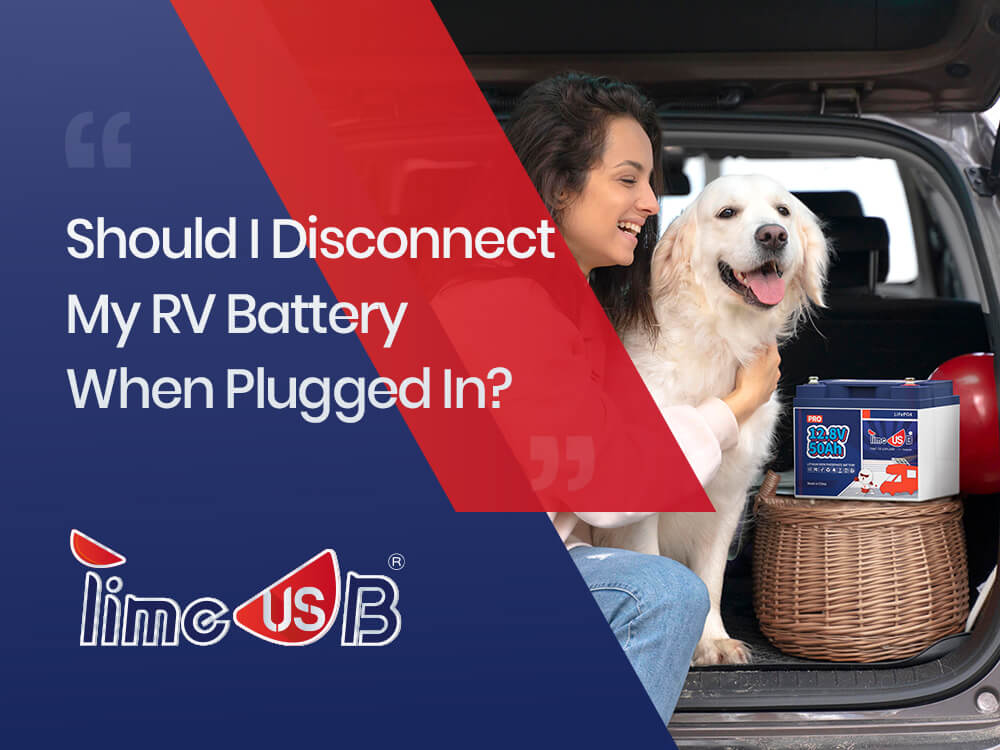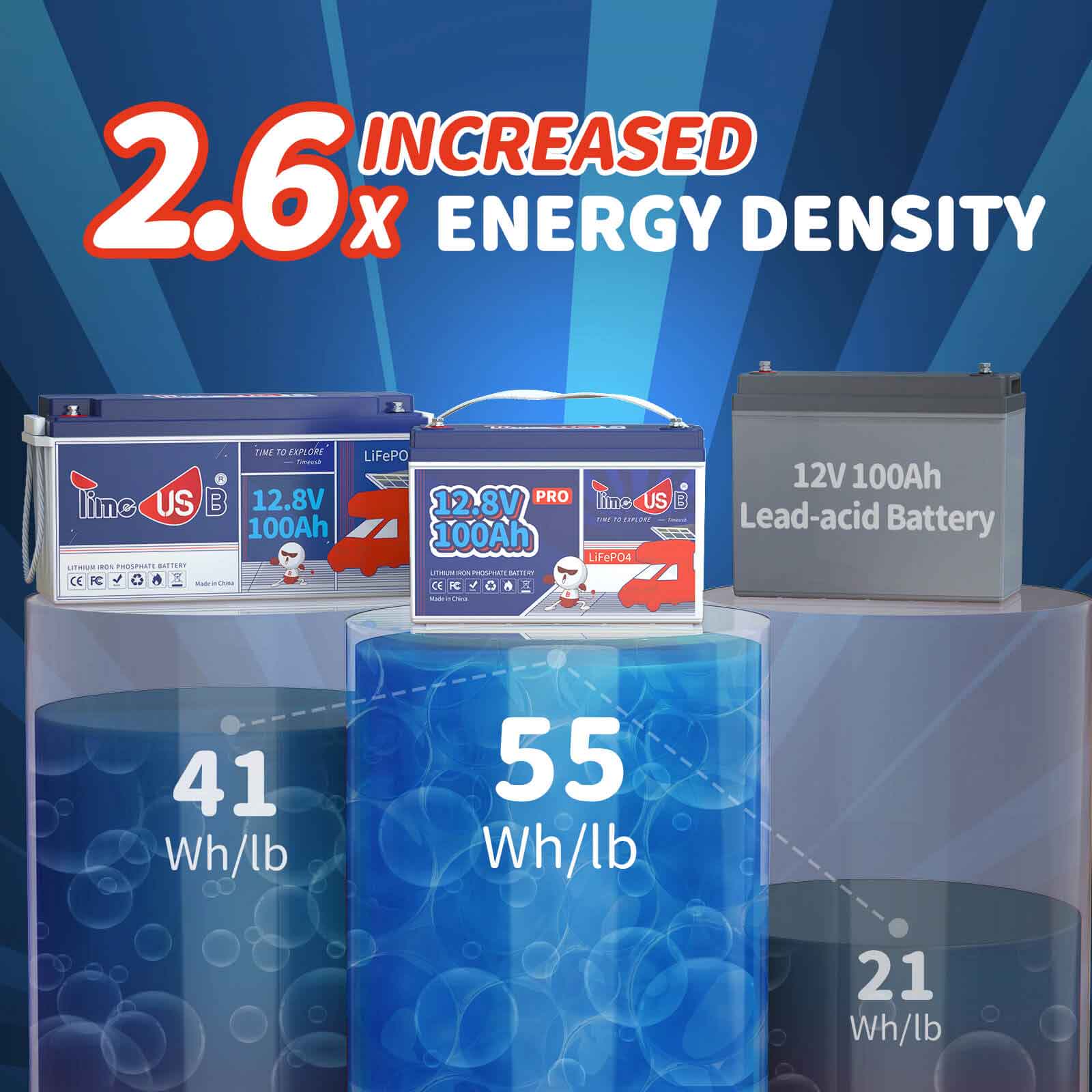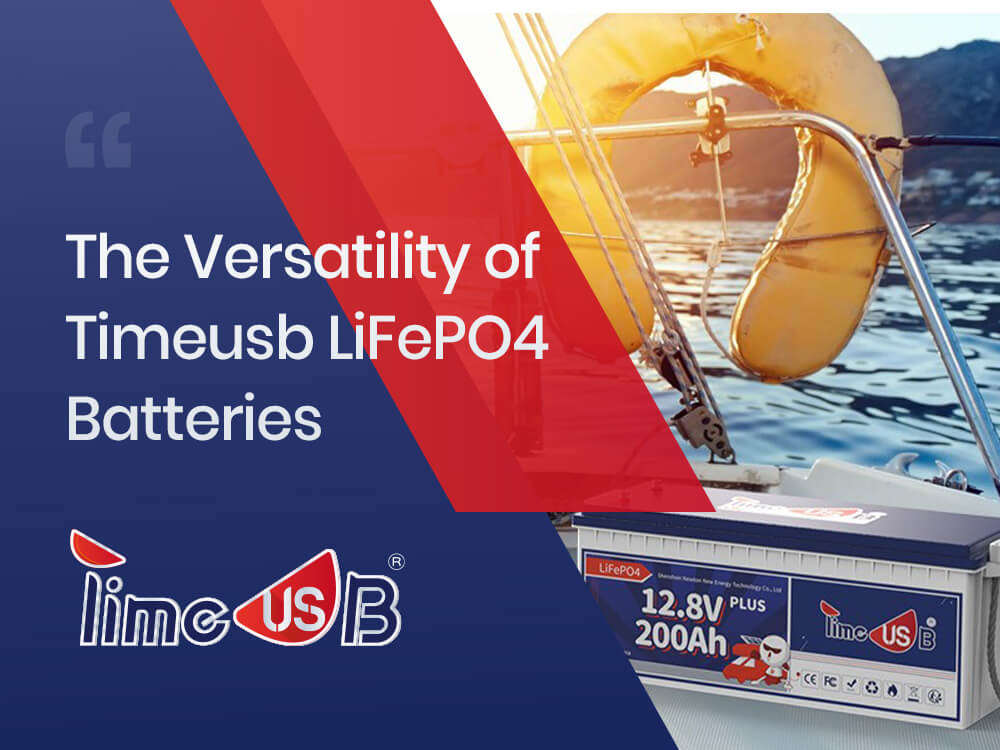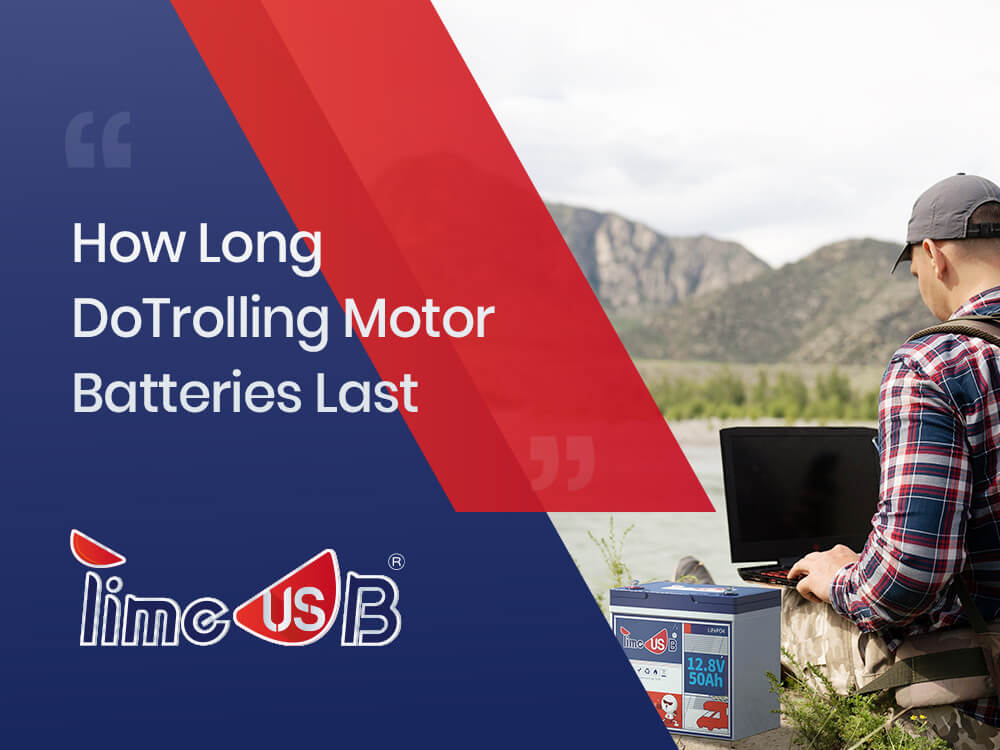Should I Disconnect My RV Battery When Plugged In?

When it comes to recreational vehicles (RVs), the house batteries play a crucial role in ensuring an enjoyable experience. These batteries power various devices in your RV, such as the refrigerator, furnace, water heater, lights, stabilizer jacks, slide-outs, and water pumps. Neglecting battery maintenance can lead to unexpected issues like being unable to retract the awning or slide out, potentially leaving you stranded.
RV batteries are notorious for draining when not in use, so it's essential to take proper care of them. In this article, we'll address common questions about RV house batteries and provide useful tips to keep them in optimal condition.
Leaving Your RV Plugged in Continuously — Is That a Problem?
In most cases, leaving your RV plugged in all the time is not a problem, thanks to the modern smart chargers that come built-in. Typically, RVs manufactured in the last decade or so are equipped with integrated converters that handle power distribution and convert Alternating Current (AC) from shore power or a generator into the 12V Direct Current (DC) needed to charge the batteries.
These built-in converters are designed to prevent overcharging, which can significantly reduce the lifespan of your batteries. To determine if your RV has a built-in converter with a float mode, refer to the manual or check the model number of your power distribution panel. If your RV lacks a built-in converter, don't worry; can use MPPT solar charge controller or DC-DC charger to solve this problem.
Can the RV Battery Recharge While Connected to Shore Power?
Yes, as long as a few conditions are met. Firstly, ensure that the battery disconnect switch, usually located near the battery, is set to the "off" position. Many RVs end up at dealerships due to owners overlooking or being unaware of this simple switch.
Secondly, verify that your RV receives sufficient shore power to meet all power requirements while still having enough power left over to charge the batteries. For example, if you're running a small 1500 Watt generator with the air conditioning on full blast in August while someone is using a hairdryer, there may not be enough power available for the converter to charge the batteries. Fortunately, modern converters are automatic and will direct power to the batteries when power draw decreases.
Will an RV Converter Work without a Battery?
The question of whether an RV converter can function without a battery is a subject of debate. To find out, plug your RV into shore power, turn on some lights, water pumps, and other 12V systems, and then turn off the battery disconnect switch mentioned earlier.
In most cases, you'll find that nearly everything still works fine without a battery. However, keep in mind that motors with high 12V current demands, such as slide-outs, may not function properly without a battery. These motors often require more current than a typical power converter can deliver at once. The battery, designed to deliver a larger dose of power, compensates for this limitation.
While many RV slide-outs can operate without a battery, it's crucial to consult the documentation or look for a sticker near the slide-out switch to confirm if your specific RV requires a battery for proper operation.
Proper Usage of an RV Battery Disconnect Switch
The RV battery disconnect switch is a vital feature for any vehicle with a house battery. By performing a single action, usually a twist, you can easily and quickly disconnect the main RV circuit from the battery. This not only protects the battery but also safeguards other electrical components in your RV.
The battery disconnect switch is usually located near the battery itself, either in a compartment or a nearby maintenance bay. Unfortunately, this switch often goes unnoticed or forgotten, buried behind gear in a storage bay.
Even when the connected appliances are turned off, batteries gradually lose charge over time Passive energy consumption from appliances on standby mode and power loss through wiring can drain the battery's charge over time. To prevent unexpected battery drain, it's important to use the battery disconnect switch in the following situations:
1. Performing electrical or appliance maintenance
Whenever you're working on your RV, whether it's replacing a light fixture or servicing the water pump, be sure to pull the fuse for the circuit and consider using the battery disconnect switch. This precautionary measure protects you from electrical accidents and helps prevent future issues.
2. Storing the RV without shore power
When your RV is destined for a temporary hiatus lasting a week or two, and you find yourself without the luxury of shore power, it's imperative to take proactive measures to preserve your batteries. By disconnecting the batteries during these idle periods, you ensure their longevity and safeguard your RV's power supply for uninterrupted adventures. This minimizes current loss caused by excess wire runs and appliance trickle, preserving battery charge.
3. Using a 7-Pin receptacle on your tow vehicle
The 7-pin connection between your RV and tow vehicle acts as a vital conduit, facilitating the seamless transfer of power. Among the seven pins, one holds the key to charging your RV's house battery. While this feature helps recharge your batteries during trips, it can also drain the vehicle's battery if the RV remains plugged in without the tow vehicle running. Some vehicles automatically disable power to the 7-pin receptacle when the engine is off, but it's still a good practice to use the battery disconnect switch to prevent any potential drain.
4. Long-term storage
If you plan to store your RV for an extended period, such as during the winter, it's advisable to disconnect the batteries. This prevents self-discharge and minimizes the risk of damage due to freezing temperatures. However, it's crucial to periodically check the battery charge and recharge them if necessary to maintain their health.
Remember, when you disconnect the batteries using the switch, the 12V electrical system in your RV will be disabled. This means that your lights, water pump, slide-outs, and other 12V appliances won't work. However, the 120V AC appliances (like the refrigerator and air conditioner) and the outlets powered by shore power or a generator will still function.
If you're unsure about how to use the battery disconnect switch or have specific questions related to your RV, it's always best to consult the owner's manual or contact the manufacturer for guidance.
Best Batteries for RV
Choosing the best batteries for RVs involves weighing the pros and cons of various options, with lead-acid and lithium batteries being two prominent choices. Lead-acid batteries have historically dominated the market due to their relatively low cost and familiarity to many RV owners. Despite their widespread use, they do come with some drawbacks, including limited lifespan, weight, and slower charging times.
In contrast, lithium batteries have rapidly gained popularity in the RV community. Their advanced technology offers several advantages over traditional lead-acid batteries. Lithium batteries are significantly lighter, have a longer lifespan, and can be charged at a much faster rate. Moreover, they boast a higher energy density, providing more power in a smaller and lighter package. These factors contribute to the appeal of lithium batteries as the ideal choice for RV enthusiasts seeking an efficient and reliable power solution for their vehicles. Timeusb provides high-quality but best budget LiFePO4 lithium RV batteries.

Timeusb 12V 100Ah Pro LiFePO4 Lithium Battery
Conclusion
In conclusion, whether you should disconnect your RV battery when plugged in depends on the situation. If you're using shore power or a generator and have a modern RV with a built-in converter that handles battery charging, you can typically leave the battery connected without any issues.
However, it's essential to use the battery disconnect switch in certain circumstances, such as during maintenance, storage without shore power, or when using a 7-pin receptacle on your tow vehicle. Taking proper care of your RV batteries will ensure they remain in good condition and provide reliable power when you need it.


![[Full Guide] The Comprehensive Guide to LiFePO4 Battery Life](http://www.timeusbpower.com/cdn/shop/articles/The_Comprehensive_Guide_to_LiFePO4_Battery_Life_757d2749-9468-4739-ac83-0960c27749b0.jpg?v=1722918256&width=1080)
